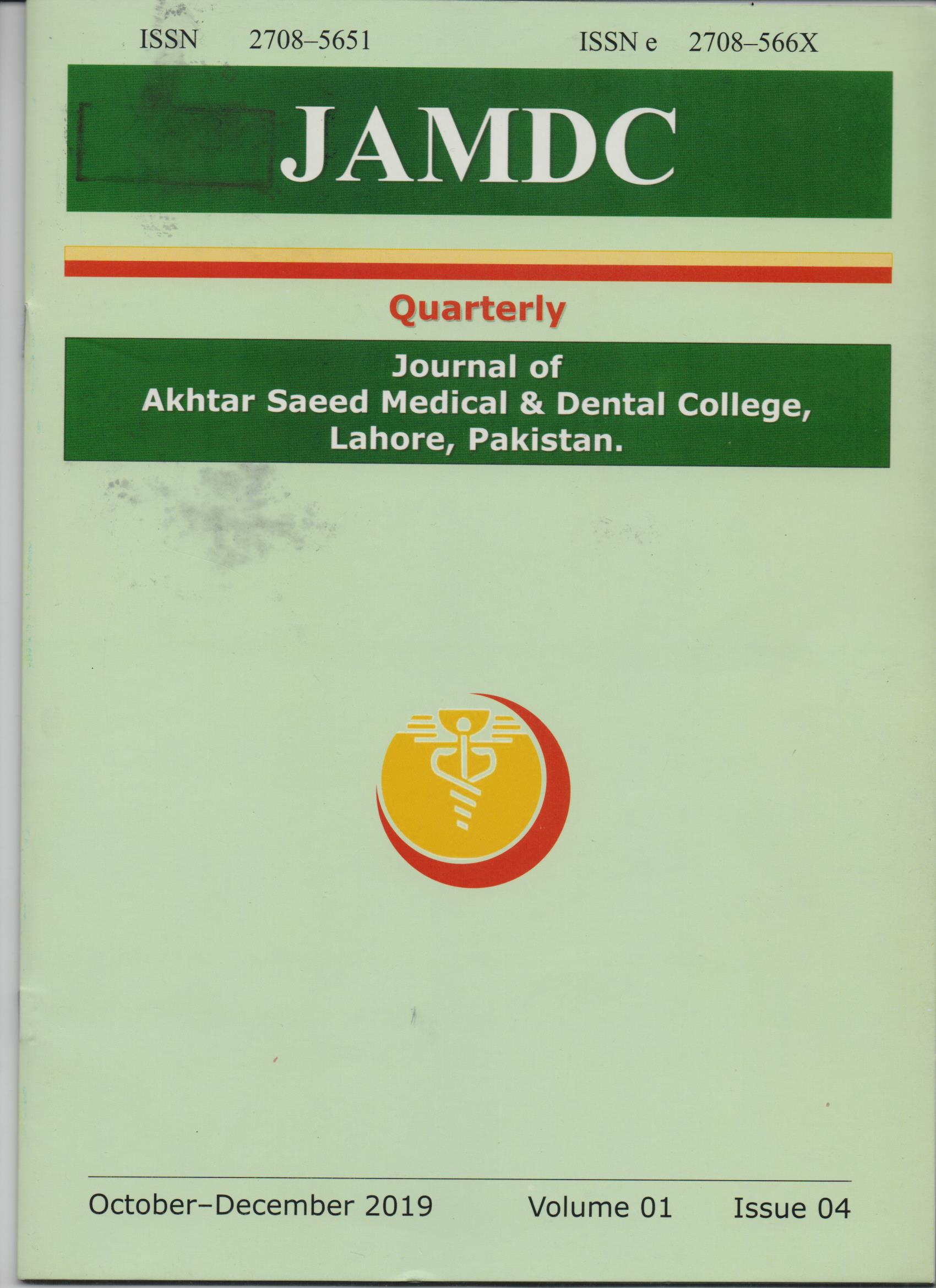IMPACT OF EDUCATION ON PRACTICES OF ANTENATAL CARE IN PREGNANT WOMEN: AN ANALYTICAL SURVEY
Main Article Content
Abstract
Background and Objective:
Maternal health is a global public health challenge that is directly affected by the practices during the antenatal period. The objective of this study was to determine factors influencing the effective utilization of antenatal services and to assess the impact of education of women toward practices of antenatal care in women of the reproductive age group in Lahore.
Material and Methods:
An analytical cross-sectional study was conducted at Lady Willingdon Hospital, Farooq Hospital, and Akhter Saeed Trust Teaching Hospital, Lahore from March to August 2019. This study included 262 pregnant mothers selected by non-probability convenience sampling from three tertiary care hospitals of Lahore. Data was collected on a structured questionnaire and was analyzed on SPSS version 22. Chi-square test was applied to assess the impact of education on the effective utilization of antenatal services and practices followed during this period.
Results:
Out of 262 pregnant women, who participated in this research 199(75.97%) were literate. The majority of them; 196(74.80%) were multigravida. Only 145(55.3%) had planned pregnancy regarding antenatal practices, 66% had reported intake of folic acid, 69.8% iron supplements, and 71.8% calcium supplements. Only 58.8% had TT vaccination coverage. On bivariate analysis, it was observed that strong association was seen between educational status and time of reporting pregnancy (p=0.001), planned pregnancy (p=0.058), folic acid supplementation (p=0.000) iron supplementation (p=0.000), calcium supplementation (p=0.046), hospital delivery (p=0.03) and delivery by a doctor (p=0.024).
Conclusion:
Education has a positive impact on good practices during the antenatal period

